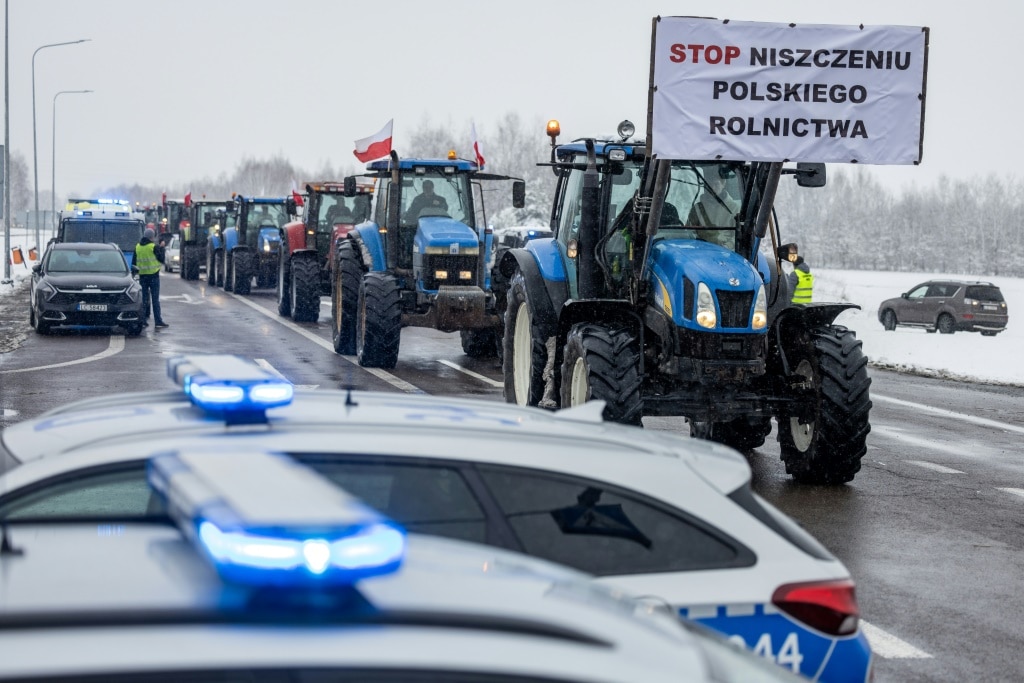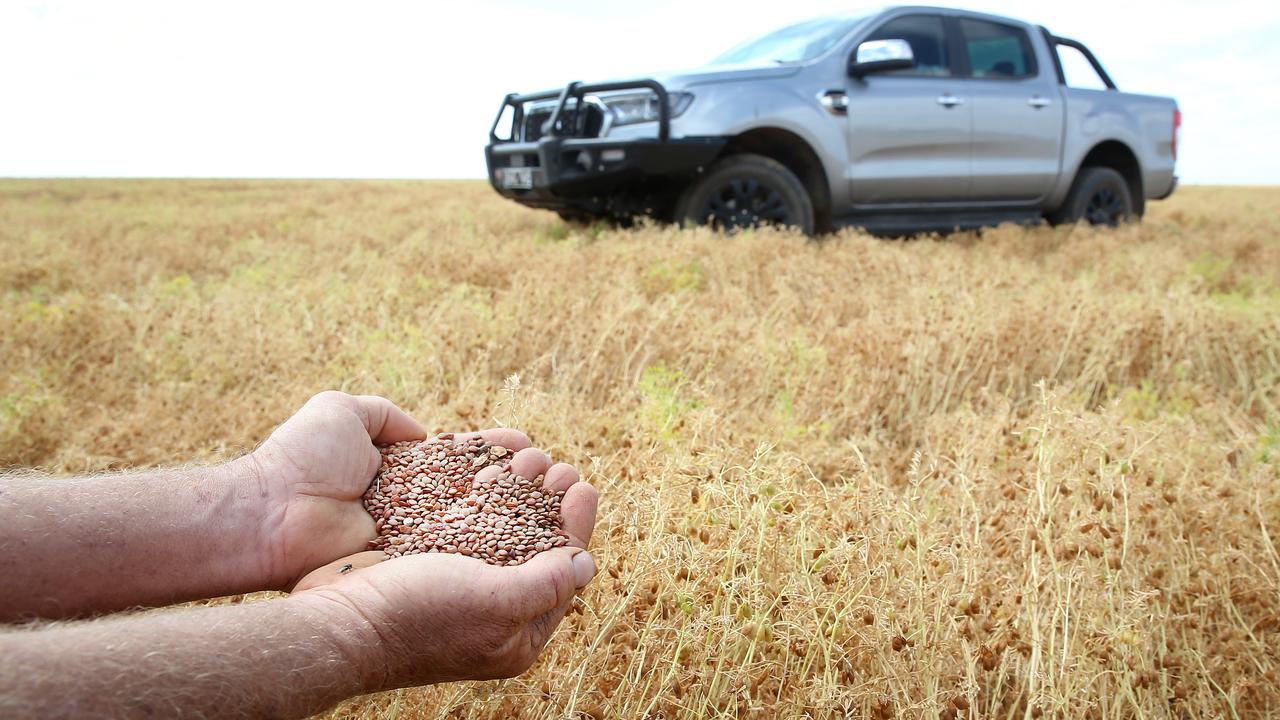European farmer protests: Australia’s perspective
Rome, Paris, Madrid — European farmers are taking to the streets. Why are they protesting? And why isn’t it happening in Australia?
Tractors rather than tourists have become a common sight along the Champs-Élysées in Paris.
Farm vehicles have also rumbled along the Gran Vía in Madrid, the Ebertstraße in Berlin and the Via della Conciliazione in Rome.
European primary producers aren’t in their respective national capitals for a Kodak moment in front of the Arc de Triomphe or Brandenburg Gate.
The landmark arches dedicated to centuries-old wars have become the picturesque backdrop to a new type of confrontation: farmers versus bureaucracy.
Over in India, the agricultural sector have also taken to placards and megaphones to get their message across to the Modi government.
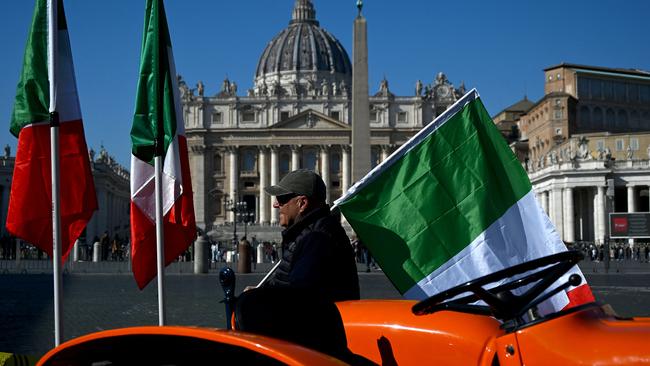
Visiting Australia last month, Irish farm consultant Mike Brady said the causes behind the continental clamour were varied.
He said the protests started in mid-2023 in the Netherlands and quickly spread to neighbouring Germany and France.
“The Dutch protests were originally due to carbon reduction policy but then it broadened to free trade policy,” Mr Brady said.
“Then with France and Germany, it’s the same issues. Much of it has to do with the growing divide between city and country.
“The policy priorities in Paris are different to rural France and Berlin to rural Germany.”
Dutch agripolitical leader Ad van Velde echoed that view.
The head of the Global Dairy Farmers organisation, Mr van Velde was in Australia last year and told The Weekly Times that Dutch policymakers often didn’t reflect market realities.
“The Netherlands is extremely rich and (urban Dutch residents) have an opinion about everything,” Mr van Velde said.
“They have a big mouth about organic but the organic market in the Netherlands is about four per cent. It doesn’t grow.
“The organic dairy farmers in France have got out of the market, there’s no business, they’ve gone back to traditional (dairy farming).”
CAPITALS BESIEGED
While Paris is known for decades of protests — from the famed 1968 student riots to the 2018 gilets jaunes (yellow vests) – other continental capitals have seen protests in the past financial year.
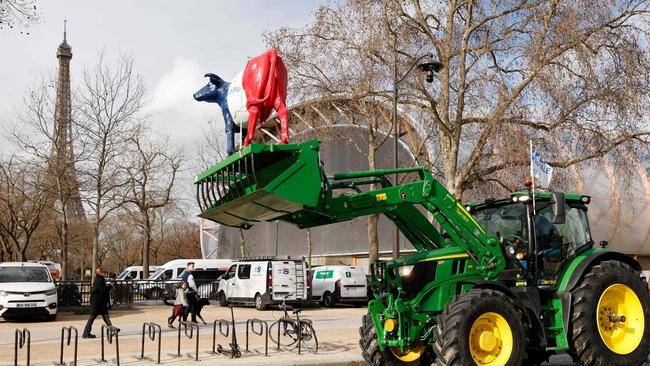
Hundreds of farmers and truck drivers rolled in from rural Romania to the capital Bucharest last month to voice their frustration at EU policy.
Last week in Athens, scores of brightly coloured tractors parked outside Greece’s parliament, horns blaring across Syntagma Square.
Polish farmers in Warsaw, Latvian farmers in Riga and Lithuanian farmers in Vilnius have all demonstrated in a similar fashion since the start of the new year.
The protest nations don’t neatly fit into a left-right political divide.
Greece, Hungary, the Netherlands, Italy, Poland and Lithuania all have conservative or right-wing coalition governments.
France, Belgium, Estonia and Latvia have centrist or coalition governments straddling the political spectrum.
Germany, Spain and Slovakia have progressive or left-wing governments in power.
But what separates the countries that have endured farmer protests to those that have remained relatively protest-free are whether they’re members of the European Union or not.
Norway, Switzerland and Great Britain are outside the eurozone and — apart from a protest in the Welsh capital Cardiff last week — have not seen protests like their EU counterparts.
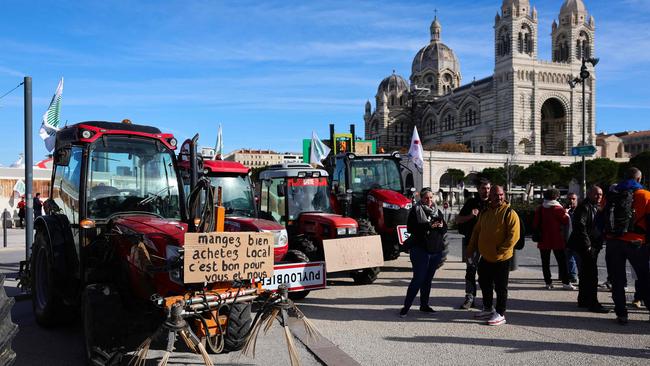
EU commission president Ursula von der Leyen has responded to the growing unrest, announcing last week that a plan to slash the use of pesticides would be dropped by Brussels. Belgian Prime Minister Alexander De Croo welcomed the announcement, saying it was “crucial we keep our farmers on board to a more sustainable future of farming.”
AUSTRALIA NEXT?
So could European-style protests occur in Australia?
National Farmers Federation president David Jochinke said much of the farmer frustration in Australia recently had been directed at the major supermarkets as much as Canberra.
“The European farmers are frustrated about policy that’s affecting their livelihoods – but it’s not about one topic,” the Wimmera farmer said.
“By country, they have different issues that they’re frustrated about. A lot of it is due to government payments and alterations to the way they’re paid.
“Fortunately in Australia, we’re not beholden to government subsidies and so we’re not as directly impacted by changes in government policy like the Europeans.”
Mr Jochinke launched his NFF presidency with the ‘Keep Farmers Farming’ campaign and sees some similarities between the Australian and European experience.
“You only have to look at Murray-Darling policy or the way transmission lines or energy projects are lumped on to regional communities,” he said.
“The common problem we have is governments not properly engaging with farmers before drawing up policy that impacts farmers and agriculture.”


